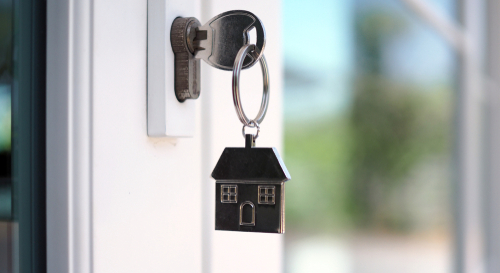Buying a Home When You’re Transgender or Non-Binary

Many couples who have their eyes on the long term are concerned with major life decisions such as marriage, children and where to live. The process for buying a home is more complicated than that of other big purchases, such as a car or major appliances. Buying a house is the single largest purchase that most people make, regardless of gender identity or sexual orientation. Getting your finances in order is one of the many things you should do in advance of making an offer on a residence, but here are some things that trans and non-binary people should also consider.
Securing a Loan
Most buyers can only do so through financing. A mortgage loan offered by a lender, such as a bank, credit union or mortgage company, covers most of the price tag. As the borrower, you typically must contribute a down payment, which is typically 20% of the property price. For a $150,000 house, you’d be expected to come up with $30,000 up front to get a typical mortgage. For many people, a 20% down payment can be prohibitive for getting a mortgage. There are loan options as well as home-buying programs that allow borrowers to contribute as little as 3.5% or less.
Five-figure down payments can be especially difficult for transgender or non-binary persons who have put most or all their savings into major medical procedures such as gender reassignment surgery. Consider working on rebuilding your funds to make a down payment, but also investigate FHA or USDA loans that require smaller down payments or local and state home-buying programs that contribute grants if you meet certain criteria.
Demonstrating Financial Stability
Lenders want to work with borrowers who have the financial ability to repay the loan. This usually means having sufficient and consistent income. Transgender and genderqueer people sometimes experience periods of unemployment, especially after major medical procedures. Almost half of transgender people are either underemployed or unemployed. It may be prudent to establish a consistent work history if you have employment gaps before looking for a house. Letters of recommendation from your professional networks may be helpful in getting financial backing from a lender.
Monitoring Debt Load
When applying for a mortgage, it’s important to be aware of your debt load. Lending companies will review your credit history, which will include other outstanding debts you may have. Transgender persons who have taken on major debt to pay for medical procedures or other costs associated with transitioning may have a debt-to-income ratio that is too high for some lenders. With medical costs running into the hundreds of thousands for some surgeries, you may need to consider paying off outstanding debts before applying for more credit.
Handling Paperwork
For people of multiple or diverse genders, money often isn’t the obstacle to home ownership that identification is. Changing gender usually requires filing of paperwork that establishes identity. With rules varying from state to state, you need to make sure that your papers are in order when applying for a home. You will need tax records, pay stubs and other documentation that may have been filed using your deadname. You may be outed as a part of the identification verification process.
Experiencing Discrimination
While there may be laws prohibiting discrimination against people due to gender identity, the home-buying process will put you in front of others who may have regressive views about non-binary or transgender persons. Regardless of who you are, you have the right to look for and hire a real estate agent, a home inspector and other professionals to represent your best interests along the way. For many people, buying a residence is the beginning of a major phase of life. This is true for transgender and genderqueer folks as well as cisgender. The purchasing process comes with challenges, especially ones that are unique to people with different gender identities. Thankfully, preparation and documentation can help make a new home a reality for anyone.














